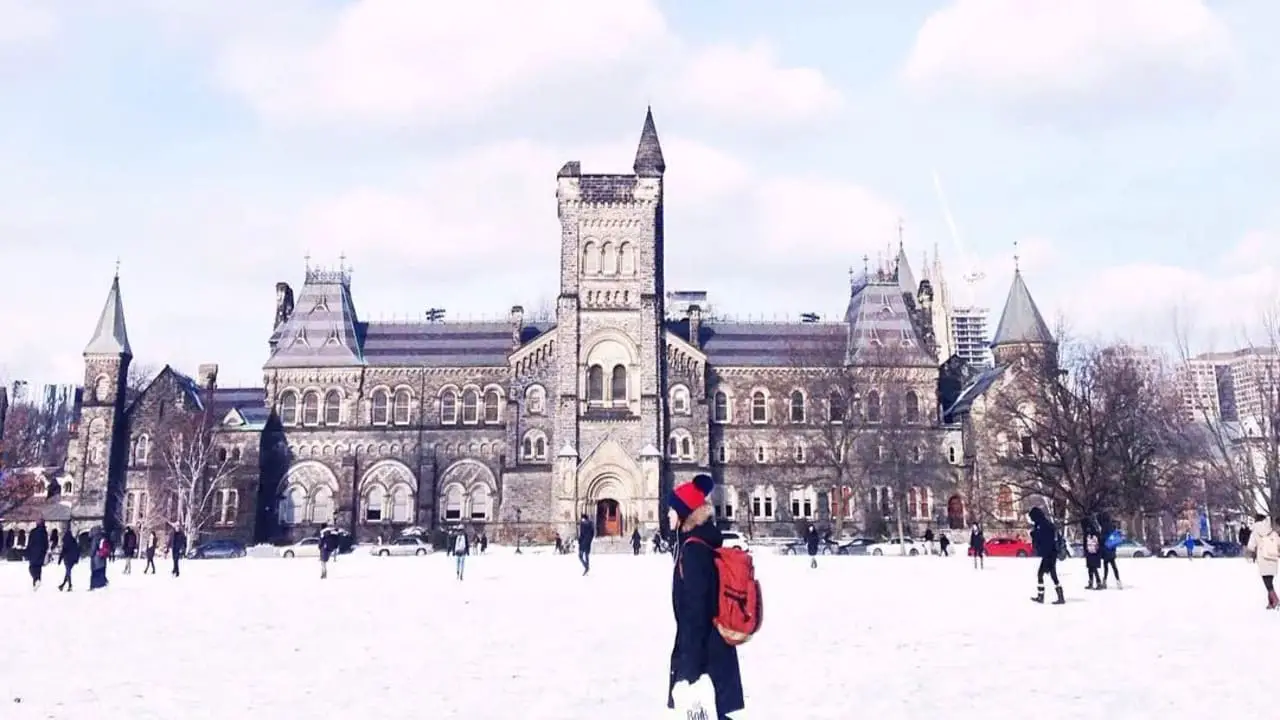Studying abroad is a life-changing experience that can broaden your horizons and help you develop valuable skills. For American college students, Canada is an increasingly popular destination for higher education due to its high-quality academic programs, cultural diversity, and affordable tuition fees.
In this article, we will provide you with everything you need to know about studying in Colleges in Canada for Americans. From the benefits of studying in Canada to the Canadian education system, applying to Canadian universities, financing your education, top colleges in Canada for Americans, and life as an American college student in Canada, we’ve got you covered.
Benefits of Studying in Canada as an American College Student
Studying in Canada as an American college student offers a wide range of benefits, including:
1. Quality of Education
Canada has a reputation for providing high-quality education to students from all over the world. Canadian universities are known for their rigorous academic programs, state-of-the-art facilities, and world-renowned faculty. Several Canadian universities are ranked among the top 100 universities in the world, according to the QS World University Rankings.
2. Cultural Diversity
Canada is a multicultural society that values diversity and inclusiveness. As a result, Canadian universities are home to a diverse student body representing different cultures, ethnicities, and nationalities. Studying in Canada as an American college student offers a unique opportunity to interact with people from different backgrounds and learn about their cultures and perspectives.
3. Cost of Education
Compared to the United States, tuition fees in Canada are generally more affordable. Additionally, many Canadian universities offer scholarships and bursaries to international students, which can help offset the cost of tuition and living expenses.
4. Career Opportunities
Studying in Canada can enhance your career prospects by providing you with the skills and knowledge that employers value. Canadian universities are known for their strong connections to industry and research, which can help you gain practical experience and make valuable connections in your field of study.
Furthermore, international students who graduate from Canadian universities are eligible for a work permit that allows them to work in Canada for up to three years after graduation.
5. Ease of Transition
Studying in Canada is a relatively easy transition for American college students. As an English-speaking country with a similar culture and lifestyle to the United States, Canada offers a familiar environment that can help ease the transition to a new country.
Additionally, many Canadian universities offer resources and support services to help international students adjust to life in Canada, including academic support, language assistance, and cultural activities.
Canadian Education System
The Canadian education system is renowned for its high-quality and student-focused approach. The system is divided into three main levels: primary, secondary, and post-secondary education. In this section, we will focus on the post-secondary education system, which includes colleges and universities.
1. Types of Post-Secondary Institutions
There are two types of post-secondary institutions in Canada: colleges and universities. Colleges offer diploma and certificate programs that are generally more vocational, while universities offer undergraduate and graduate degrees in a wide range of academic fields.
2. Degree Structure
Canadian universities typically offer undergraduate degrees that take four years to complete. Some programs, such as engineering and architecture, may take up to five years to complete. Graduate programs, including master’s and doctoral degrees, generally take two to three years to complete.
3. Grading System
The Canadian grading system is based on a percentage scale of 0-100, with 50 being the minimum passing grade. Most universities use a letter grade system, where grades are assigned a letter (A, B, C, D, or F) based on the percentage earned. The exact grading scale may vary depending on the institution and program.
4. Course Selection and Registration
Canadian universities offer a wide range of courses and programs, allowing students to tailor their education to their interests and career goals. Course selection and registration processes may vary depending on the institution, but generally, students are required to meet with an academic advisor to plan their course schedule and register for classes. Some universities also offer online registration systems that allow students to select and enroll in courses online.
5. Academic Calendar
The academic calendar in Canada typically runs from September to April, with two semesters or terms. Some universities also offer a summer term, which runs from May to August. Each semester or term is usually 13-15 weeks long, with a break in between for exams and holidays.
Applying to Canadian Universities as an American College Student
Applying to a Canadian university as an American college student is a straightforward process, but there are some important steps to keep in mind. In this section, we will outline the application process for international students interested in studying in Canada.
- Research Universities and Programs: The first step in applying to a Canadian university is to research universities and programs that match your interests and career goals. Look for universities that offer programs in your chosen field and have a good reputation for academic quality.
- Meet Admission Requirements: Each university will have its admission requirements, which may include academic transcripts, test scores, essays, and letters of recommendation. Be sure to review the admission requirements for each university you are interested in to ensure that you meet the criteria.
- Application Deadlines: It’s important to note that application deadlines for Canadian universities can vary depending on the institution and program. Be sure to check the application deadline for each university you are interested in to ensure that you submit your application on time.
- Submit Application and Supporting Documents: Once you have selected the universities and programs you want to apply to, you can begin the application process. You will need to complete the application form and provide supporting documents, including academic transcripts, test scores, essays, and letters of recommendation. Be sure to follow the instructions carefully and submit all required documents before the application deadline.
- Apply for Scholarships and Financial Aid: Many Canadian universities offer scholarships and financial aid to international students. Be sure to check with each university you are interested in to learn about the available options and application requirements.

Top Colleges in Canada for Americans
Canada is home to many top-ranked colleges and universities that offer high-quality education and diverse campus experiences. Here are some of the top colleges in Canada for American college students, along with a comprehensive overview of each university.
1. University of Toronto
The University of Toronto is one of Canada’s oldest and most prestigious universities. Established in 1827, the university is located in Toronto, Ontario, and is renowned for its academic excellence, research, and innovation. Notable faculty members at the University of Toronto include author Margaret Atwood, former Prime Minister of Canada, and recipient of the Nobel Peace Prize Lester B. Pearson.
With a vast student body from all around the world, American students at the University of Toronto can expect to receive a culturally rich education that prepares them for the global job market. Additionally, the university’s strong focus on research and innovation creates opportunities for American students to work alongside leading researchers in their respective fields.
2. McGill University
McGill University is located in Montreal, Quebec, and is one of Canada’s top-ranked universities. Established in 1821, the university is known for its academic excellence, research, and vibrant campus culture. Notable faculty members at McGill University include physicist Ernest Rutherford, the 2014 Nobel Prize in Physiology or Medicine laureate, and Philosopher and winner of the 2007 Templeton Prize Charles Taylor.
McGill University’s bilingual environment and location in Montreal make it an excellent choice for American students seeking to improve their French language skills and immerse themselves in a vibrant cultural scene. The university’s extensive alumni network also provides American students with valuable networking opportunities in both Canada and the United States.
3. University of British Columbia
The University of British Columbia is located in Vancouver, British Columbia, and is one of Canada’s top-ranked universities. Established in 1908, the university is known for its academic excellence, research, and commitment to sustainability. Notable faculty members at the University of British Columbia include the author of the 1993 Nobel Prize in Chemistry winner Michael Smith, environmentalist David Suzuki, and economist John Kenneth Galbraith.
The University of British Columbia’s location in Vancouver offers American students the opportunity to study in a breathtaking natural environment while still enjoying the benefits of living in a bustling urban center. The university’s emphasis on sustainability and social responsibility also aligns well with the values of many American students.
4. Queen’s University
Queen’s University is located in Kingston, Ontario, and is one of Canada’s top-ranked universities. Established in 1841, the university is known for its academic excellence, research, and commitment to student engagement. Notable faculty members at Queen’s University include philosopher Chair of the Atomic Energy Control Board of Canada John Deutsch, author Michael Ondaatje, and Nobel Prize-winning chemist and professor of chemistry John Polanyi.
Queen’s University’s commitment to student engagement and extracurricular activities provides American students with ample opportunities to get involved in campus life and build valuable leadership skills. The university’s strong reputation in the fields of business and law also makes it an attractive choice for American students pursuing careers in those areas.
5. University of Alberta
The University of Alberta is located in Edmonton, Alberta, and is one of Canada’s top-ranked universities. Established in 1908, the university is known for its academic excellence, research, and commitment to innovation. Notable faculty members at the University of Alberta include literary theorist and expert on postmodernism Linda Hutcheon, chemist Gerhard Herzberg, and editor and rights activist Doris Anderson.
The University of Alberta’s strong focus on innovation and entrepreneurship provides American students with opportunities to work on cutting-edge projects and collaborate with leading experts in their respective fields. The university’s location in Edmonton also offers American students a welcoming and supportive community, with plenty of cultural and recreational activities to enjoy.
Conclusion
Studying in Canada as an American college student can be a rewarding and life-changing experience. With a world-class education system, welcoming culture, and stunning natural beauty, Canada offers many benefits to international students.
To make the most of your experience, it’s important to do your research and plan. This includes understanding the Canadian education system, exploring options for financing your education, and preparing for life as an international student.
Additional Posts:

